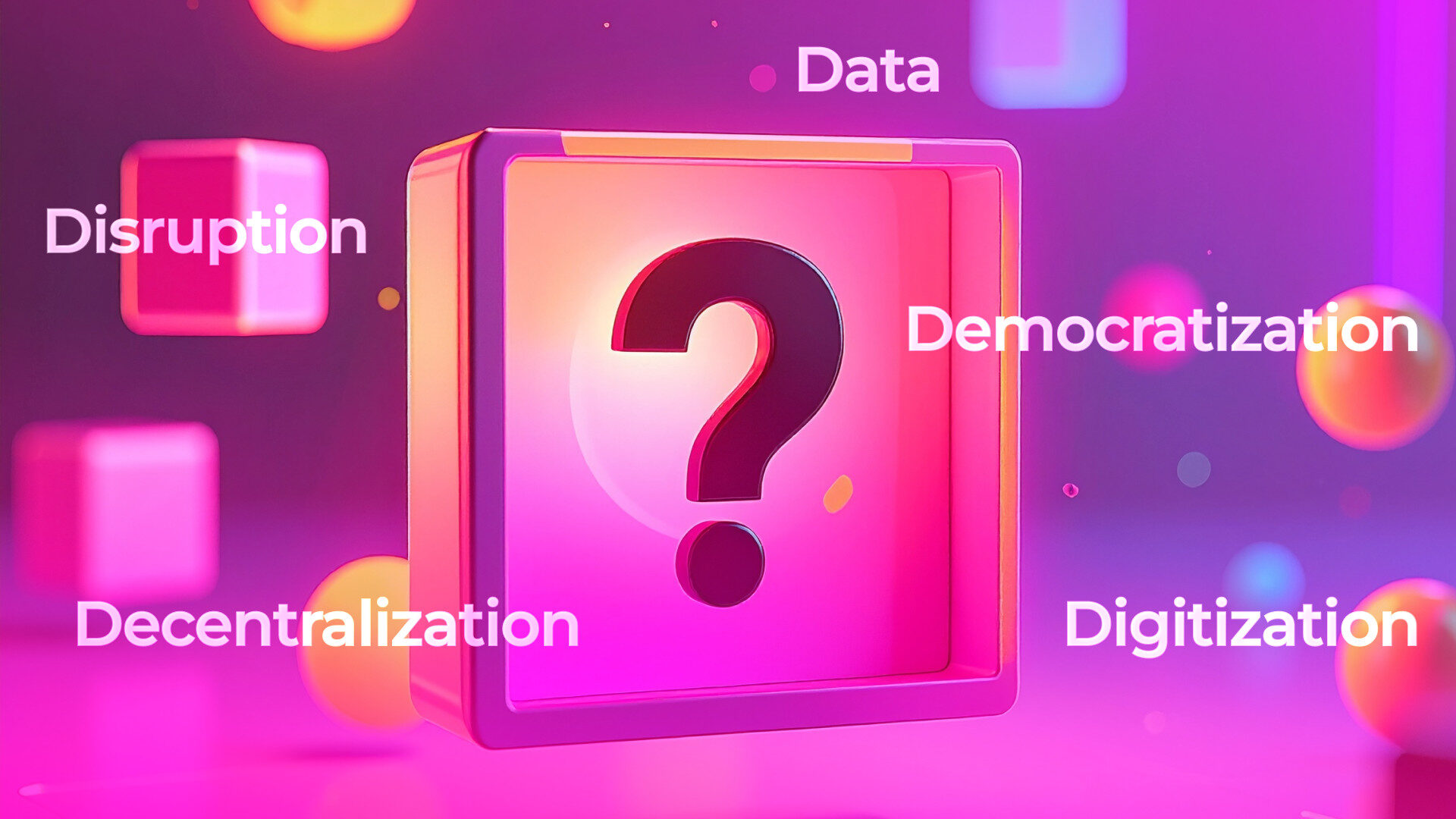
The fintech world is buzzing with terms, and among them are five key pillars that help us see through the noise. They are Digitization, Disruption, Democratization, Decentralization, and Data. These “5 Ds” act as a guiding framework to understand fintech’s evolution and where opportunity lies.
1. Digitization: From Paper to Pixels
What it is: Digitization is the foundational shift from analog processes, like paper ledgers, manual approvals, and branch visits, to digital workflows, mobile apps, and cloud infrastructure.
Think of it as the backbone of digital banking, online payments, and automated underwriting. It improves system connectivity, lowers costs, and expands companies’ reach, as well as empowers fintechs to leapfrog older institutions’ legacy systems.
Why it matters: Without digitization, none of the other Ds can sustainably scale. It’s the foundation that enables everything else.
2. Disruption: Redefining the Status Quo
What it is: Disruption is the act of challenging entrenched financial systems, like bank branches, slow settlement, and rigid credit scoring.
Fintech firms often pitch themselves as “bank alternative,” but disruption has become table stakes. The key is to make sure it’s a meaningful disruption, helping companies lower costs, increasing transparency, or delivering novel value.
Why it matters: Disruption forces incumbents to adapt or risk irrelevance. In marketing, disruption is no longer a differentiator; clarity, proof, and purpose are.
3. Democratization: Access for All
What it is: Democratization is about expanding access to financial services for underserved or ignored populations, including the underbanked, small businesses, gig workers, or emerging-market users.
Many fintechs aim to democratize investing, credit, and banking services. These companies have increasingly been linked to financial inclusion and opening up access to capital.
Why it matters: When fintechs succeed in democratisation, they tap new markets and deliver on the promise of finance for everyone. However, the user experience must be seamless, or the promise falls flat.
4. Decentralization: Reimagining Control
What it is: Decentralization is the shift away from centralized intermediaries (banks, clearinghouses) toward distributed architectures (blockchain, peer-to-peer networks).
In practice, decentralized finance (DeFi) protocols, smart contracts, and tokenized assets are reshaping how financial services operate. Decentralization is a spectrum, and not all systems are equally decentralized. Research shows many DeFi projects still have central nodes of influence.
Why it matters: Decentralization promises lower intermediary fees and greater autonomy. However, governance mechanics, security, and regulatory questions remain.
5. Data: The New Currency
What it is: Data is now at the heart of fintech models and is used for underwriting, personalization, fraud mitigation, dynamic pricing, and predictive analytics.
Fintechs run on data, which allows them to analyze behavior, creditworthiness, patterns, and risk. But data is a double-edged sword, and can be both an asset and a liability. Users, regulators, and enterprises demand transparency, privacy, and ethical usage.
Why it matters: Companies that can collect, process, and protect data effectively will gain a competitive advantage. In marketing, you must position data use as a benefit (security, value), not a creepy burden.
For fintech leaders, these Ds are a lens to evaluate strategy:
- Are you digitized enough to scale?
- Are you offering real disruption (not just buzzwords)?
- Who are you giving access to — are there underserved markets you can reach?
- How much control do you cede to infrastructure, and how much do you build yourself?
- How do you collect data ethically, and how do you leverage it as a differentiator?

Demystifying the 5 D’s of fintech is more than an academic exercise; it’s a strategic tool. As a fintech marketing or product leader, you can use it to audit your positioning, test your value props, and communicate clearly to both investors and customers.
If you’d like help applying these D’s to your own fintech brand, T Palmer Agency would love to assist. Email info@tpalmeragency.com to get in touch!





